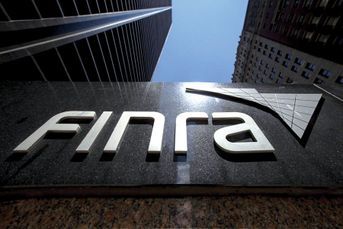Nontraded REIT sponsors changing compensation for advisers
New share class dubbed a “T share” cuts upfront commission brokers are paid but creates an annual trailing commission.
New pricing rules that will make the true cost of alternative investments more transparent to investors is prompting nontraded REIT sponsors to change the way they compensate advisers who sell their products.
According to Chad LaFauci, director of real assets at Commonwealth Financial Network, nontraded REIT sponsors are devising a new share class dubbed a “T share” that cuts the upfront commission brokers are paid when selling a nontraded real estate investment trust but creates an annual trailing commission.
(More: Finra fines six IBDs for failing to give discounts on large REIT sales)
During the first half of 2015 there was a lot of confusion regarding what the nontraded REITs would eventually look like, Mr. LaFauci said. “The new products that sponsors are introducing have what is being called a T share, which will have a lower upfront commission to the adviser,” he said. “Instead of a 6% or 7% commission to the adviser, it will be reduced to 2%. The investor will also be charged a 1% annual service fee that is capped after a certain amount of years.”
RESPONDING TO REGULATORS
The regulators want a decrease in upfront commission costs, he said. The emphasis on the compensation essentially changes from an upfront commission to a trail in the new share class.
“We want to see a share class that adjusts to what the regulators are asking for,” said Mr. LaFauci, who made his comments in Washington on Friday at the firm’s annual meeting.
Traditionally, nontraded REITs are a high commission product, with individual advisers receiving 6% to 7% commission for a sale. Adding in other fees and commissions, investors can pay 11% to 12% of an initial investment. The initial cost of the nontraded REIT, however, is not currently reflected on a client’s account statement.
RULE CHANGE
The Financial Industry Regulatory Authority Inc. and the industry have been working on the client account statement rule change since 2011, and a final rule was created in 2015. The new rules would give investors a truer picture of what it costs to buy shares of a nontraded REIT and other illiquid alternative investments. The rule essentially does away with the practice of broker-dealers listing the per-share value of nontraded REITs at $10, the common price at which brokers sell them to clients.
(More: The new Finra rule for alternatives advisers need to prepare for)
Instead, the Finra rule would take into consideration various fees and commissions paid to brokers and dealer managers, reducing the share price on each customer account.
“These rules weren’t a surprise. They were announced almost a year ago,” said Mr. LaFauci. “The regulators did a good job signaling they were coming.”
Learn more about reprints and licensing for this article.








